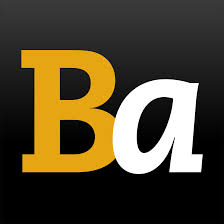buy wine after 9 wisconsin

The alcohol laws of Wisconsin consist of both statewide statutes and local ordinances governing the sale of alcohol. When Wisconsin became a state, settlers from the eastern United States (known as Yankees) took issue with the consumption of alcohol by German immigrants on Sunday, as well as the prevalence of alcoholism. The Wisconsin legislature passed a law in 1849 that made liquor sellers liable for the costs incurred by local governments in supporting alcoholics. Ten years later, the state prohibited liquor sales on Sundays. In 1872, alcohol regulation reached new heights in the state with the passage of the Graham Law. This legislation prohibited drunkenness and the sale of alcohol to minors, and required all liquor sellers to post a $2,000 bond (more than $30,000 in 2007 U.S. dollars).[2] German-Americans fought the new law in the courts and at the ballot box. Although they lost challenges in the courts, they were able to elect a legislature friendlier to alcohol consumption.

[3] Wisconsin Senator John J. Blaine sponsored the Act that later became the Twenty-first Amendment to the United States Constitution, ending Prohibition.
where to buy wine chocolate[4] The state was the second to ratify the amendment on April 25, 1933. State law prohibits retail sale of liquor and wine between 9:00 p.m. and 6:00 a.m., and beer between midnight and 6:00 a.m.[6] State law allows local municipalities to further restrict retail sales of alcohol, or ban the issuance of retail liquor licenses altogether.[7] Local ordinances often prohibit retail beer sale after 9:00 p.m. At least two municipalities in Wisconsin prohibited the retail sale of alcohol until recently: the city of Sparta,[8][9][10] and the village of Ephraim.[12] In the April 1, 2014 Wisconsin spring election, voters in Sparta narrowly passed a referendum to allow the sale of beer and wine in groceries and convenience stores.

The ban on the sale of liquor within the city remains in effect.[13] In the April 5, 2016, voters in Ephraim passed a referendum to allow the sale of beer and wine in restaurants and businesses. State law requires that bars be closed between 2:00 a.m. and 6:00 a.m. Monday through Friday and between 2:30 a.m. and 6:00 a.m. on Saturday and Sunday. Exceptions are made on New Year's Eve, when no closing is required, and for changes in Daylight Saving Time. State law does not permit municipalities to further restrict when bars must be closed.[6] Municipalities may elect, however, to prohibit the issuance of liquor licenses, making the municipality effectively dry. The drinking age in Wisconsin is 21. Those under the legal drinking age may be served, possess, or consume alcohol if they are with a parent, legal guardian, or spouse who is of legal drinking age.[15] Those age 18 to 20 may also possess (but not consume) alcohol as part of their employment. The 1983 Wisconsin Act 74, effective July 1, 1984, created a drinking age of 19.

Meeting in special session at the call of the governor, the legislature enacted 1985 Wisconsin Act 337, which raised the drinking age to 21 and brought the state into compliance with the NMDA (National Minimum Drinking Age) on September 1, 1986. The NMDA law was amended to permit an exception for those persons who were between ages 18 and 21 on the effective date of the law. Wisconsin 19- and 20-year-olds were “grandfathered in” by this exception after enactment of Act 337. In effect, the state did not have a uniform age of 21 until September 1, 1988. ^ a b Joseph A. Ranney, 'Aliens and "Real Americans": Law & Ethnic Assimilation in Wisconsin, 1846-1920', Wisconsin Lawyer. ^ Consumer Price Index (CPI) Conversion Factors 1774 to estimated 2019 to Convert to Dollars of 2007 http://oregonstate.edu/cla/polisci/faculty-research/sahr/cv2007.pdf ^ Joseph A. Ranney. "Demon rum and Sunday lager: The temperence movemenet (sic) in Wisconsin". ^ Wisconsin Historical Society.

^ Amendments to the Constitution http://www.house.gov/house/Constitution/Amend.html ^ a b c Wisconsin Department of Revenue. Wisconsin Alcohol Beverage and Tobacco Laws for Retailers. ^ a b Wis. Stat. 125.05 http://www.legis.state.wi.us/statutes/Stat0125.pdf ^ La Crosse Tribune, ^ Chris Hubbuch, "Sparta again says no to alcohol sales," La Crosse Tribune, April 8, 2009. ^ City of Oshkosh, Wisconsin Resolution, July 25, 2006 http://www.ci.oshkosh.wi.us/weblink8/0/doc/430545/Page1.aspx ^ City of Sparta beer referendum narrowly passes ^ Green Bay Press-Gazette, ^ a b Wisconsin Legislative Reference Bureau, Brief 95-3: The Minimum Drinking Age in WisconsinAs the owner of a business with an alcohol beverage license, from whom must I buy beer, wine, and liquor? You must buy beer from a wholesaler that holds a wholesale beer permit, brewery permit or brewpub permit issued by the state. You must buy wine and intoxicating liquor from a wholesaler that holds an intoxicating liquor wholesale permit issued by the state.

You may not purchase or possess alcohol (liquor, beer, wine) from another retail licensee, even if you only hold a "temporary" license. What records must I keep and for how long? You must keep your current cigarette and alcohol beverage license, and you must keep invoices from beer, liquor, cigarette, and other tobacco products companies for two years. You must keep the invoices in order by company and by date. Alcohol beverage records may be kept on the licensed premises in electronic form only, paper copies are not required. You cannot keep them at home, at the accountant's or bookkeeper's office, or anywhere other than on the licensed premises. You must also keep invoices from beer wholesalers, brewpubs or brewers, indicating the value of any signs that they give or sell to you. If an Alcohol & Tobacco Enforcement agent or police officer finds beer, wine, or liquor (or cigarettes/tobacco products) for which you cannot show a purchase invoice, the agent or officer can and will confiscate those items, and you may be charged with a crime.

I hold a retail alcohol beverage license. If I run out of beer, wine, or liquor (or get a better price), can I buy from another retailer? No, you may not under any circumstances buy (or borrow) from another retailer - not from taverns, restaurants, liquor stores, grocery stores, or any other retailer. If an Alcohol & Tobacco Enforcement agent or police officer finds beer, wine, or liquor (or cigarettes/tobacco products) that you bought from a retailer, the agent or officer can and will confiscate those items, and you may be charged with a crime. Can't I buy small amounts of beer, wine, or liquor (or cigarettes/tobacco products) from other retailers? There is no exception for small amounts. Any alcohol purchased in violation is subject to seizure. If I sell my tavern or liquor store, can I sell my remaining beer, liquor, cigarettes, and tobacco products inventory to the new licensee? You may transfer sealed bottles of intoxicating liquor, including wine, and beer to the new licensee.

You may NOT transfer open bottles of intoxicating liquor. You may NOT transfer cigarettes or tobacco products. Will the new licensee who gets the liquor or beer need to keep invoices showing that I bought the liquor from wholesalers? In place of an invoice, transferred intoxicating liquor or beer must be documented using an Alcohol Beverage Stock Transfer form (AT-900) that can be obtained from the Department of Revenue website. This report provides an inventory of the stock transferred. One copy should be retained by the buyer and one copy should be retained by the seller. The buyer must keep his/her copy on the licensed premises, as he/she keeps invoices, for two years. I've heard I have to break empty liquor bottles. What if I recycle? You do not need to break empty intoxicating liquor bottles, but you must scratch, deface, or mutilate the label so that it can't be used again. If you recycle, empty liquor bottles must be stored in containers marked "For Recycling Only" and must be removed from the premises within ten days.

The rule about defacing labels does not apply to ceramic commemorative bottles and other uniquely designed decanters. Can I refill empty bottles? No, this is illegal. You cannot refill bottles, even with the same brand of liquor. When must I close my tavern or restaurant? Class "B" (beer), "Class B" (intoxicating liquor including wine), and "Class C" (wine only) licensed premises must be closed from 2 a.m. until 6 a.m. Monday through Friday. On Saturday morning (following Friday night) and Sunday morning (following Saturday night), you may stay open until 2:30 a.m. On January 1 (following New Year's Eve), you do not have to close.Certain businesses, like hotels, restaurants whose principal business is selling food, bowling centers, movie theaters, painting studios, indoor horseshoe-pitching facilities, curling clubs, golf courses and golf clubhouses, may stay open after these hours for their regular business but may not sell or allow consumption of beer, wine, or liquor.

How late can I sell packaged beer, wine, and liquor for carryout from my tavern or restaurant? Class "B" (beer) or "Class B" (intoxicating liquor, including wine) licensees must stop selling packaged beer, wine, and liquor at midnight. However, many towns, villages, and cities have more restrictive hours. Check with your local police department or municipal clerk. When must I close my liquor store, convenience store, or grocery store? It depends on the kind of license you hold.If you just have a Class "A" (beer) license, you must stop selling beer from midnight until 6 a.m., unless your local town, village, or city has more restrictive hours. Check with your local police department or municipal clerk. You may stay open for other business. During the hours that you do not sell beer, you do not need to have the licensee, agent, or a licensed operator on the premises.If you have a "Class A" (intoxicating liquor including wine) or "Class A" (cider only) license, you may not sell wine or liquor (including cider) from 9 p.m. until 6 a.m.

The licensee, agent, or a licensed operator must be present during all business hours, even when you are not open for the sale of wine or liquor. Do police officers have to get a search warrant to look through my licensed premises?Agents from the Department of Revenue and the Department of Justice, as well as police officers, can inspect the licensed premises to make sure that all taxes are paid and all alcohol beverage laws are being followed. Such an inspection may cover the entire premises covered by the license and include all places where alcohol beverages, cigarettes, and tobacco products may be stored. They may also inspect all places where business records may be kept. If the law officers are inspecting for other reasons, they may need a warrant. Consult your attorney for accurate information. When can officers and agents inspect? The law says they can inspect "at all reasonable hours." This means the hours when the place is open for business and other hours if the place is open, operating, or occupied.

What will happen if I refuse to allow officers or agents to inspect? Wisconsin law makes refusal to inspect grounds for revoking or suspending your license. It is also a misdemeanor crime. What will officers or agents look for when they inspect? They will try to make sure that taxes are being paid and alcohol beverage laws are being followed. Department of Revenue Alcohol & Tobacco Enforcement agents will make sure that all licenses and permits are current and properly posted, that the premises are legally supervised, that invoices are on-premises and in order, that invoices cover stock on hand, that underage or intoxicated persons are not present, and that a variety of other requirements are being followed. At the conclusion of the inspection, they will answer questions, explain problems, and, if necessary, they may confiscate alcohol beverages, cigarettes, tobacco products, or related items that are kept in violation of the law. Can I accept Internet or phone orders and deliver alcohol beverages to customers?